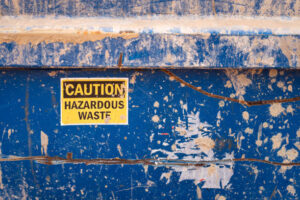In an era where environmental consciousness meets public health awareness, the connection between eco-friendly waste disposal practices and community well-being has never been more critical. Every year, an estimated 11.2 billion tonnes of solid waste is collected worldwide, with the decay of organic waste contributing about 5 percent of global greenhouse gas emissions. The way communities handle their waste directly affects air quality, water purity, soil health, and ultimately, the health of residents. This comprehensive exploration reveals how sustainable waste management practices create healthier communities while protecting our environment for future generations.
The Current Global Waste Crisis and Its Health Implications
The world faces an unprecedented waste management challenge that directly threatens community health. In developing countries, most cities collect only 50–80% of generated waste after spending 20–50% of their budgets, with many low-income countries collecting as low as 10% of suburban garbage, contributing to higher incidents of diarrhea and acute respiratory infections among people, particularly children, living near garbage dumps.
The health implications of poor waste management are staggering. Research has shown that uncontrolled burning of household waste causes an extra 270,000 premature deaths every year around the world, though the real figure is likely to be much higher. These statistics underscore the urgent need for communities to adopt eco-friendly disposal methods that protect public health.
The Hidden Dangers of Improper Waste Disposal
Improper disposal can lead to adverse health outcomes through water, soil and air contamination, with hazardous waste or unsafe treatment such as open burning directly harming waste workers and neighboring communities. The contamination cycle affects multiple aspects of community life:
Air Quality Degradation: Poor waste management causes air pollution, water and soil contamination, while municipal solid waste landfills account for 15.5 percent of human-related methane emissions in the U.S., contributing to global climate change.
Water Contamination: Open and unsanitary landfills contribute to contamination of drinking water and can cause infection and transmit diseases. The disposal of untreated health care wastes in landfills can lead to contamination of drinking, surface, and ground waters if landfills are not properly constructed.
Disease Transmission: Poor waste collection leads to flooding and standing waters in waste items that favor cholera and vector-borne diseases such as malaria and dengue.
The Science Behind Eco-Friendly Waste Disposal
Sustainable waste management operates on scientific principles that prioritize human health and environmental protection. The waste management hierarchy, established by environmental agencies worldwide, prioritizes source reduction, reuse, recycling, and composting over landfilling and incineration.
Understanding the Waste Hierarchy
EPA promotes the waste management hierarchy, which ranks various waste management strategies from most to least environmentally preferred, prioritizing source reduction and reuse of waste materials over recycling. This hierarchy forms the foundation of eco-friendly disposal practices:
- Source Reduction: Preventing waste generation at its source
- Reuse: Extending the life of products and materials
- Recycling: Converting waste materials into new products
- Composting: Biological decomposition of organic materials
- Energy Recovery: Converting waste to energy
- Treatment and Disposal: Safe disposal as a last resort
The Role of E-Waste in Community Health
Electronic waste represents a growing threat to community health. About 54 million tons of e-waste are created annually with an expected increase to 75 million tons by 2030, yet only 17% was documented as being properly collected and recycled in 2019. When e-waste is recycled using unsound activities, it can release up to 1000 different chemical substances into the environment, including known neurotoxicants such as lead.
How Eco-Friendly Disposal Transforms Community Health
1. Improved Air Quality and Respiratory Health
Sustainable waste management practices significantly improve community air quality. Areas where waste management facilities are concentrated can result in negative impacts on human health and property values, but recycling provides these areas with a healthier and more sustainable alternative.
Reduction in Toxic Emissions: Open burning and low-temperature incineration of health care wastes can result in the emission of dioxins, furans and particulate matter. Eco-friendly alternatives like proper recycling and composting eliminate these harmful emissions.
Methane Reduction: For every million metric tons of organic wastes that decompose, 469 metric tons of carbon dioxide equivalent greenhouse gases in the form of methane are released, but composting reduces those emissions by more than 50 percent.
2. Water Quality Protection and Public Health
Improved air and water quality can significantly enhance the well-being of citizens, and by using resources more efficiently, waste management practices can help distribute resources more equitably, ultimately helping to reduce poverty.
Groundwater Protection: Land disposal creates problems such as ground water contamination, methane gas formation and migration, and disease vector hazards. Eco-friendly disposal methods protect groundwater sources that communities depend on for drinking water.
Prevention of Leachate: Leachate from decomposing waste can seep into the ground, polluting groundwater and endangering both ecosystems and human health. Proper waste segregation and treatment prevent these dangerous chemicals from entering water supplies.
3. Soil Health and Food Safety
Sustainable waste management practices contribute to healthier soil and safer food production. Compost enriches soil by adding organic matter, which improves soil structure, increases nutrient content, and enhances water retention, leading to healthier plants and reducing the need for irrigation and chemical inputs.
Reduced Chemical Dependence: Proper composting can reduce dependence on chemical fertilizers, help recover soil fertility, and improve water retention and delivery of nutrients to plants.
Contamination Prevention: Storing green waste improperly emits harmful liquids that can contaminate soil, air and water quality. Eco-friendly green waste management prevents this contamination.
The Economic and Social Benefits of Eco-Friendly Waste Management
Job Creation and Economic Growth
Recycling creates jobs: the sector employs 12 million people in Brazil, China and United States alone. Recycling stimulates the local economy by creating jobs in the sorting and processing of recyclables, which is more labor-intensive than waste disposal.
Massachusetts Success Story: Massachusetts’ commercial organic waste law has been successful at lowering food waste entering landfills, reducing methane emissions and waste management costs, while creating over 900 jobs and increasing the Gross State Product by $77 million.
Community Engagement and Social Cohesion
Community recycling programs foster a sense of responsibility and unity among residents, with participation in recycling initiatives leading to a cleaner and healthier community.
Educational Benefits: Community-based recycling programs educate and raise awareness, promote community engagement and collaboration, and improve overall community health and well-being.
Property Values: By reducing the number of landfills, property values can improve, and communities can take concrete steps to address global warming.
Specific Eco-Friendly Disposal Methods and Their Health Benefits
1. Composting: Nature’s Recycling System
Composting represents one of the most effective eco-friendly disposal methods with significant health benefits. Composting effectively diverts organic waste from landfills, significantly reducing methane emissions, utilizing an aerobic process that substantially mitigates these emissions.
Climate Benefits: Composting organic waste versus landfilling can reduce more than 50% of carbon dioxide-equivalent greenhouse gas emissions. Composting helps the climate by restoring soil health, building resilience to climate-related changes, reducing reliance on synthetic fertilizers, and sequestering carbon.
Health Co-Benefits: Composting reduces air pollution and associated respiratory illnesses such as chronic obstructive pulmonary disease, asthma, and pneumonia, while improving soil health and agricultural yields.
2. Comprehensive Recycling Programs
Recycling provides many benefits to our environment, creating a healthier planet for ourselves and future generations. Community-based recycling programs reduce pollution, prevent the release of hazardous substances into the environment, and contribute to cleaner air, water, and soil, with improved environmental conditions positively impacting community health and well-being.
Resource Conservation: Recycling leads to substantial resource savings – for every tonne of paper recycled, 17 trees and 50 per cent of water can be saved.
Greenhouse Gas Reduction: According to EPA data, the recycling and composting of municipal solid waste saved over 193 million metric tons of carbon dioxide equivalent in 2018.
3. Proper Hazardous Waste Management
Communities should provide clear guidelines for disposing hazardous waste, such as batteries, chemicals, and electronic waste, with special collection events or drop-off locations ensuring these materials are handled safely.
The importance of proper hazardous waste management cannot be overstated. Hazardous waste has the potential to negatively affect human health and the environment, and generation and management of hazardous wastes can contaminate land, air, and water.
Case Studies: Communities Transforming Health Through Eco-Friendly Disposal
The Gambia: Drain Clearance Success
Following the first citywide drain clearance event in Kanifing Municipal Council, The Gambia, incidences of malaria dropped by half. This demonstrates the direct health benefits of proper waste management in preventing vector-borne diseases.
New York City: Urban Composting Initiative
New York City’s composting program collects food scraps and yard waste from residents, turning it into compost used in parks and gardens throughout the city. This program demonstrates how large urban areas can implement sustainable waste management practices that benefit community health.
Overcoming Challenges in Implementing Eco-Friendly Disposal
Infrastructure and Investment Needs
One of the biggest challenges in implementing sustainable waste-management practices is lack of infrastructure, with many communities lacking the necessary facilities and resources to support waste reduction, recycling, and composting programmes.
Public Education and Awareness
Most reports from respondents indicate there is still a lack of information available to communities about the impacts improper waste disposal has on human health. Comprehensive education programs are essential for successful implementation.
Financial Considerations
Global solid waste management costs are anticipated to increase to about $375.5 billion in 2025, with more than four-fold increases in lower- to middle-income countries. However, the health cost savings from proper waste management often offset these investments.
The Path Forward: Building Healthier Communities Through Sustainable Practices
Policy Recommendations
- Integrated Waste Management Systems: Selecting safe and environmentally friendly management options protects people from hazards when collecting, handling, storing, transporting, treating or disposing of waste.
- Public-Private Partnerships: Public-private partnerships can enhance community waste management by combining the strengths of both sectors, providing the expertise, resources, and innovation needed to tackle complex waste management challenges.
- Community Engagement: Encouraging waste management practices can lead to increased community involvement through providing better access to recycling and composting resources, educating citizens about sustainable practices, and promoting participation in green initiatives.
Individual and Household Actions
Communities are strengthened when individuals take responsibility for eco-friendly disposal practices. Simple actions like proper waste segregation, composting organic waste, and participating in recycling programs create cumulative health benefits for entire communities.
Technology and Innovation
Emerging technologies in waste treatment, including anaerobic digestion, advanced recycling methods, and waste-to-energy systems, offer promising solutions for communities seeking to improve both environmental and health outcomes.
Long-Term Health Benefits and Community Resilience
Climate Adaptation and Health Security
Recycling food scraps and other organics into compost helps agricultural systems adapt to climate change by improving soil health, building soil organic matter, increasing water retention and infiltration, and reducing the risk of erosion.
Disease Prevention and Public Health
The implementation of comprehensive eco-friendly disposal systems creates multiple layers of disease prevention, from reducing vector breeding sites to preventing water contamination and improving air quality.
Economic Resilience
Communities with robust eco-friendly waste management systems demonstrate greater economic resilience through job creation, reduced healthcare costs, improved property values, and attraction of environmentally conscious businesses and residents.
Conclusion: The Imperative for Action
The evidence is clear: eco-friendly disposal practices are not just environmental necessities—they are fundamental public health interventions that create healthier, more resilient communities. By reducing food waste, composting helps reduce greenhouse gas emissions that affect climate change, while food loss and waste generate an estimated 8-10 per cent of global greenhouse gas emissions.
As communities worldwide grapple with increasing waste generation and mounting health challenges, the adoption of sustainable waste management practices offers a pathway to improved public health, environmental protection, and economic prosperity. The transformation begins with understanding that every piece of waste properly managed is a step toward a healthier community.
The time for action is now. Communities that invest in eco-friendly disposal systems today will reap the health benefits for generations to come, creating a legacy of environmental stewardship and community well-being that extends far beyond waste management alone.













